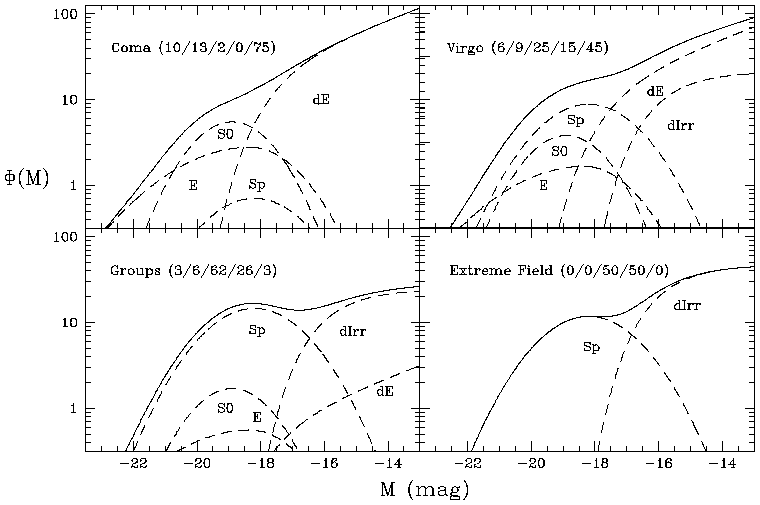Creat your own Galaxy Luminosity Function

Welcome to my Galaxy Luminosity Function Engine. You can use the form below to create
your own B-band luminosity function (LF) of a volume-limited galaxy population. The assumption is
that the shapes of the type-specific LF of ellipticals (E), lenticulars (S0), spirals (Sp), dwarf
irregulars (dIrr), and dwarf ellipticals (dE) are invariant of the environment and thus the observed
variation of the overall LFs from galaxy clusters to the field has its origin in the different type mixtures
(known as the morphology-density relation). To calculate the overall
LF we employ different analytical expressions for the LFs of the five
main Hubble types. The default shape parameters for the LFs of the
three classical Hubble types E, S0, and Sp were taken from
Jerjen & Tammann 1997, A&A, 321, 713
while the parameters for dwarf irregulars and dwarf ellipticals
come from
Sandage, Binggeli, & Tammann, AJ, 1985, 90, 1759. All
parameters can be changed according to your preferences using the
parameter boxes. Simply give the type mixture
of the galaxy population for all galaxies brighter than the absolute
magnitude M_lim. (Note: if you use this form several times, please reload
the image with the final result as this is not done automatically yet.)

